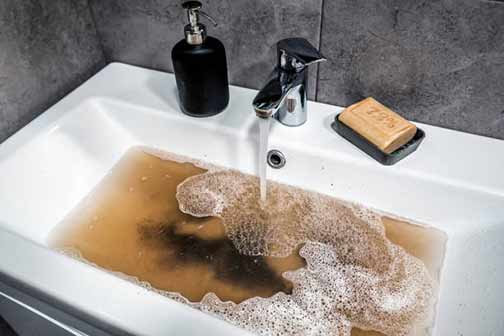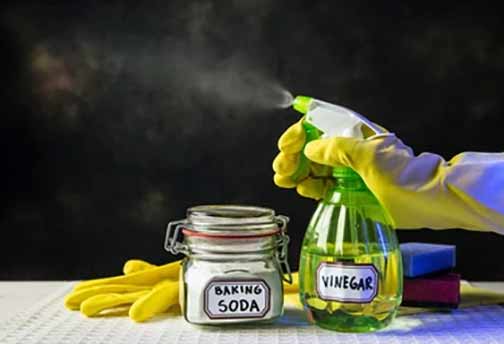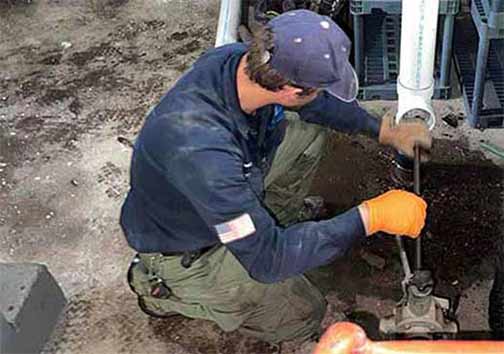
Many homeowners underestimate the potential consequences of neglecting drain clogs. What may start as a minor inconvenience can quickly escalate into a significant issue, causing damage to your plumbing system and home. Ignoring these clogs can lead to costly repairs and even health hazards. Understanding the risks associated with clogged drains is the first step in preventing them from becoming a larger problem. When a drain is blocked, water cannot flow freely, which can lead to backups and overflows. This can cause water damage to floors, walls, and ceilings, resulting in expensive repairs and potential structural damage.
Furthermore, stagnant water in clogged drains becomes a breeding ground for bacteria and mold, posing health risks to you and your family. The damp environment encourages the growth of harmful microorganisms, which can lead to respiratory problems and other health issues. Additionally, the presence of mold and mildew can exacerbate allergies and asthma, making it crucial to address clogs promptly.
Ignoring a clog can also lead to increased water pressure within the pipes, which may cause leaks or bursts. This not only damages your plumbing system but can also lead to flooding in your home. The cost of repairing or replacing damaged pipes can be significant, not to mention the inconvenience of dealing with water damage and potential loss of personal belongings.
Understanding the Causes of Drain Clogs
To effectively manage and prevent drain clogs, it’s crucial to understand their common causes. Hair, soap scum, grease, food particles, and foreign objects are the usual suspects. In kitchen sinks, grease and food remnants often accumulate, while bathroom drains are frequently clogged with hair and soap residue. Being aware of these causes allows you to take proactive measures to prevent clogs from forming. For instance, in the kitchen, avoid pouring cooking grease or oil down the sink, as they can solidify and trap other debris, leading to blockages.
In bathrooms, hair is a common culprit. When combined with soap scum, it can form a stubborn clog that is difficult to remove. Installing a drain cover can help catch hair before it enters the drain, reducing the likelihood of a clog. Additionally, regularly cleaning the drain cover and removing any trapped debris can prevent buildup.
Foreign objects, such as small toys, jewelry, or personal care items, can also cause clogs if accidentally dropped into drains. Ensuring that drains are covered and teaching household members to be mindful of what goes down the drain can help prevent these types of blockages.
Signs That Your Drain Needs Immediate Attention
Often, drains will exhibit warning signs before a complete blockage occurs. Slow drainage, unpleasant odors, gurgling sounds, and water pooling around drains are all indicators that should not be ignored. Recognizing these signs early on can save you from more severe problems down the line. If you notice any of these symptoms, it’s time to take action. Slow drainage can indicate a partial blockage that, if left untreated, may develop into a complete clog.
Unpleasant odors emanating from drains are often caused by trapped food particles, grease, or other debris decomposing within the pipes. This not only creates a foul smell but can also attract pests such as flies and cockroaches. Addressing the source of the odor promptly can prevent further issues.
Gurgling sounds in the pipes can be a sign of air trapped by a clog. This can indicate that water is not flowing smoothly through the pipes and may signal an impending blockage. Water pooling around drains, whether in sinks, showers, or bathtubs, is a clear indication that water is not draining properly and requires immediate attention.

Effective DIY Solutions for Minor Clogs
For minor clogs, there are several do-it-yourself methods you can employ before calling in a professional. One common technique is using a plunger to dislodge the blockage. Baking soda and vinegar can also be used as a natural drain cleaner. Pouring boiling water down the drain can help dissolve grease and soap scum. However, it’s important to use these methods with caution, as improper use can damage your pipes.
When using a plunger, ensure there is enough water in the sink or tub to cover the plunger’s cup. This creates a seal and allows for effective suction to dislodge the clog. For best results, use a vigorous up-and-down motion and be patient, as it may take several attempts to clear the blockage.
A mixture of baking soda and vinegar is a natural and effective way to clear minor clogs. Start by pouring half a cup of baking soda down the drain, followed by half a cup of vinegar. Allow the mixture to sit for about 15-30 minutes, then flush with boiling water. This method can help break down organic material and clear the drain.
Boiling water is another simple solution for minor clogs caused by grease or soap scum. Carefully pour a kettle of boiling water down the drain in stages, allowing the hot water to work on dissolving the blockage. Repeat as necessary, but avoid using boiling water on PVC pipes, as it may cause damage.
The Importance of Regular Drain Maintenance
Regular drain maintenance is crucial in preventing clogs and ensuring the longevity of your plumbing system. This includes routine cleaning and inspections to catch potential problems early. Installing drain guards can help prevent debris from entering your pipes. Additionally, being mindful of what you dispose of down your drains can greatly reduce the risk of clogs.
Regular maintenance should include cleaning drain covers and traps to remove any accumulated debris. This simple step can prevent materials from entering the pipes and causing clogs. For kitchen sinks, periodically flush the drain with hot water to clear any grease buildup.
Scheduling regular inspections by a plumber can help identify potential issues before they become major problems. A plumber can use specialized tools to check for blockages, leaks, or other concerns within the plumbing system. Early detection and intervention can save you money and prevent more extensive damage.
When to Call a Professional Plumber
While DIY methods can be effective for minor clogs, there are times when it’s best to call a professional plumber. If your efforts to clear a clog are unsuccessful, or if you encounter recurring issues, professional intervention is necessary. Plumbers have the tools and expertise to address severe blockages and underlying problems that may not be apparent to the untrained eye.
Persistent clogs that do not respond to DIY methods may indicate a more serious issue, such as a blockage deep within the plumbing system or a damaged pipe. In such cases, a plumber can use specialized equipment, such as a drain snake or hydro jet, to clear the blockage and restore proper drainage.
Additionally, if you notice signs of a leak, such as water stains on walls or ceilings, or a sudden increase in your water bill, it’s important to seek professional help. A plumber can identify the source of the leak and make necessary repairs to prevent further damage.

Preventative Measures to Avoid Future Clogs
Prevention is always better than cure when it comes to drain maintenance. Regularly cleaning your drains, using drain covers, and disposing of waste properly can go a long way in preventing clogs. Avoid pouring grease or oil down the sink, and be cautious about what you flush down the toilet. Educating your household on these practices can help maintain a healthy plumbing system.
Encourage household members to be mindful of what goes down the drain. In the kitchen, scrape food scraps into the trash before rinsing dishes, and use a strainer to catch larger particles. In the bathroom, avoid flushing items such as wipes, cotton balls, or sanitary products, as these can cause blockages in the plumbing system.
Regularly clean drain covers and traps to remove any debris that may have accumulated. This simple step can prevent materials from entering the pipes and causing clogs. Additionally, consider scheduling routine plumbing inspections to catch potential issues early and prevent major problems.
Understanding the Long-Term Impact of Neglected Drains
Neglecting drain maintenance can have long-term repercussions on your home and health. Persistent clogs can lead to pipe corrosion, leaks, and water damage. In severe cases, mold growth can occur due to excess moisture, posing health risks to you and your family. By taking proactive steps to maintain your drains, you can avoid these undesirable outcomes.
Corroded pipes are more prone to leaks and bursts, which can result in significant water damage to your home. Repairing or replacing burst pipes can be costly, and the process may require extensive work to access and fix the affected areas.
Mold and mildew thrive in damp environments, and neglected drains can create the perfect conditions for their growth. Exposure to mold can cause respiratory issues, allergic reactions, and other health problems. Addressing clogs and maintaining your drains can help prevent mold growth and protect your family’s health.
The Role of Technology in Modern Drain Maintenance
Advances in technology have introduced innovative solutions for drain maintenance. Sewer camera inspections allow plumbers to diagnose problems without invasive measures. Hydro jetting is an effective technique for clearing stubborn clogs and cleaning pipes. Embracing these technological advancements can enhance the efficiency and effectiveness of your drain maintenance efforts.
Sewer camera inspections involve using a small camera to visually inspect the interior of pipes. This allows plumbers to accurately identify blockages, leaks, or other issues without the need for extensive digging or dismantling. This non-invasive approach saves time and reduces disruption to your home.
Hydro jetting uses high-pressure water jets to clear stubborn clogs and clean the interior of pipes. This method is highly effective in removing grease, scale, and other debris that can accumulate over time. Hydro jetting not only clears existing blockages but also helps prevent future clogs by thoroughly cleaning the pipes.
Conclusion: A Call to Action for Homeowners
In conclusion, drain maintenance is an essential aspect of homeownership that should not be overlooked. By understanding the causes of clogs, recognizing early warning signs, and implementing preventative measures, you can protect your home from potential damage. Whether through DIY methods or professional services, taking action to maintain your drains will save you time, money, and stress in the long run. Don’t wait for a small clog to become a big problem—start prioritizing your drain maintenance today.
Remember, regular maintenance and prompt attention to warning signs can prevent costly repairs and protect your family’s health. Educate yourself and your household on best practices for drain care, and don’t hesitate to seek professional help when needed. By taking a proactive approach to drain maintenance, you can ensure the longevity and efficiency of your plumbing system, providing peace of mind and a healthy home environment.

